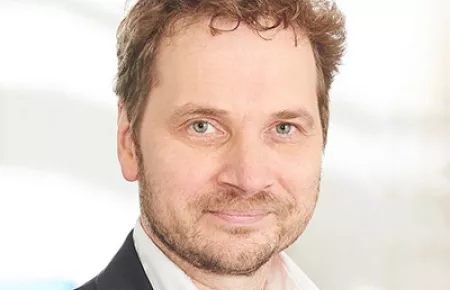Exceptional commitment
- OPTIMUM project wins Excellence Award in three categories
- Award for innovation, standardisation and market impact
The international OPTIMUM project led by Demag Cranes & Components and funded in Germany by the Federal Ministry of Education and Research (BMBF), has received the “Exceptional ITEA Award of Excellence”. The research project has been recognized in all three award categories. The jury acknowledged its decision for the OPTIMUM Project’s high level of innovation, its significant impact on the markets in the fields of “Material Handling” and “Smart Manufacturing” and for its great achievements in standardization.
Consortium Lead Anja Fischer of Demag Cranes & Components explains: “As an international consortium, we are thrilled to receive this special award, which we see as appreciation of our joint efforts. For all of us, it was a special experience that united the many international experts into an outstanding team to achieve and finally present exceptional results.”
OPTIMUM: safety and efficiency in production
The ITEA project OPTIMUM (OPTimised Industrial IoT and Distributed Control Platform for Manufacturing and Material Handling) started in November 2017 to develop a future-oriented control platform for the “Material Handling” and “Smart Manufacturing” sectors. The research project focussed on distributed control systems, indoor localisation of man and machine, cyber security as well as 3D engineering & visualisation. A further goal was to benefit from new IIoT (Industrial Internet of Things) concepts to promote connectivity and efficiency in production. Seventeen consortium partners from six nations were involved in the project. Thanks to this international cooperation, the technologies developed in OPTIMUM can be used in different domains and different countries.
OPTIMUM: on the way to the Smart Factory
Based on the status that industrial processes are predominantly controlled centrally and hierarchically, the partners from industry, SMEs, research institutes and universities, who were united in the OPTIMUM project, investigated pioneering future concepts such as component-based and collaborative automation, which require decentralized control structures. To promote this development, OPTIMUM addressed
- the improvement of aspects of distributed control,
- the adaptation of IoT technologies to meet industry requirements,
- the optimisation of control and assistance applications by considering context and location information,
- 3D engineering and equipment monitoring on the basis of digital twins.
Research initiatives in OPTIMUM helped to enable different overhead and floor-bound machinery from various manufacturers (e.g. cranes, “AGV” automated guided vehicle systems and forklifts) to interact with each other in standard applications.Humans are at the center of the semi-automated processes. This interaction between man and machine(s), coupled with context awareness, enables the implementation of innovative assistance functions that have the potential to significantly reduce cycle times in production processes.
A further fundamental aim of OPTIMUM was to support all partners involved in the project as well as the industry in general to prepare for requirements in connection with Smart Factories. OPTIMUM achieved further successes in standardisation. For instance, the project partners drove the development of a global uniform OPC UA (Open Platform Communication Unified Architecture) companion specification for cranes and hoists, which was evaluated as part of the OPTIMUM project.
Anja Fischer: “The outcome of this project far exceeded our expectations. There are eight patent ideas of which three patent ideas have already been approved on a national level. In addition, a total of 12 new full-time jobs were created and 43 university papers (9 bachelor theses, 23 master theses and 11 project papers) were successfully completed by the consortium partners involved in the project. Above all, however, we were able to identify ways to further strengthen the competitiveness of the participating industries. A total of 15 demonstrators were installed in 4 countries, which can be used to vividly present and validate the project results. With the establishment of the Demag Research Factory at our site in Wetter (Ruhr), Germany, we have also created ideal conditions within the OPTIMUM project to bring together research results in a real production environment and to test them under practical conditions."
The award ceremony for the OPTIMUM consortium will take place during the ITEA Project Outline Preparation Days on September 15, 2022 in Helsinki.
About ITEA
ITEA is the Eureka RD&I Cluster on software innovation, enabling a large international community of big industry, SMEs, start-ups, academia, research centres and customer organisations to collaborate in funded projects that turn innovative ideas into new businesses, jobs, economic growth and benefits for society. It is industry-driven and covers a wide range of business opportunities facilitated by digitisation like smart mobility, healthcare, smart cities and energy, manufacturing, engineering and safety & security.
Your contact

Christoph Kreutzenbeck
Ruhrstrasse 28
58300 Wetter
Germany


